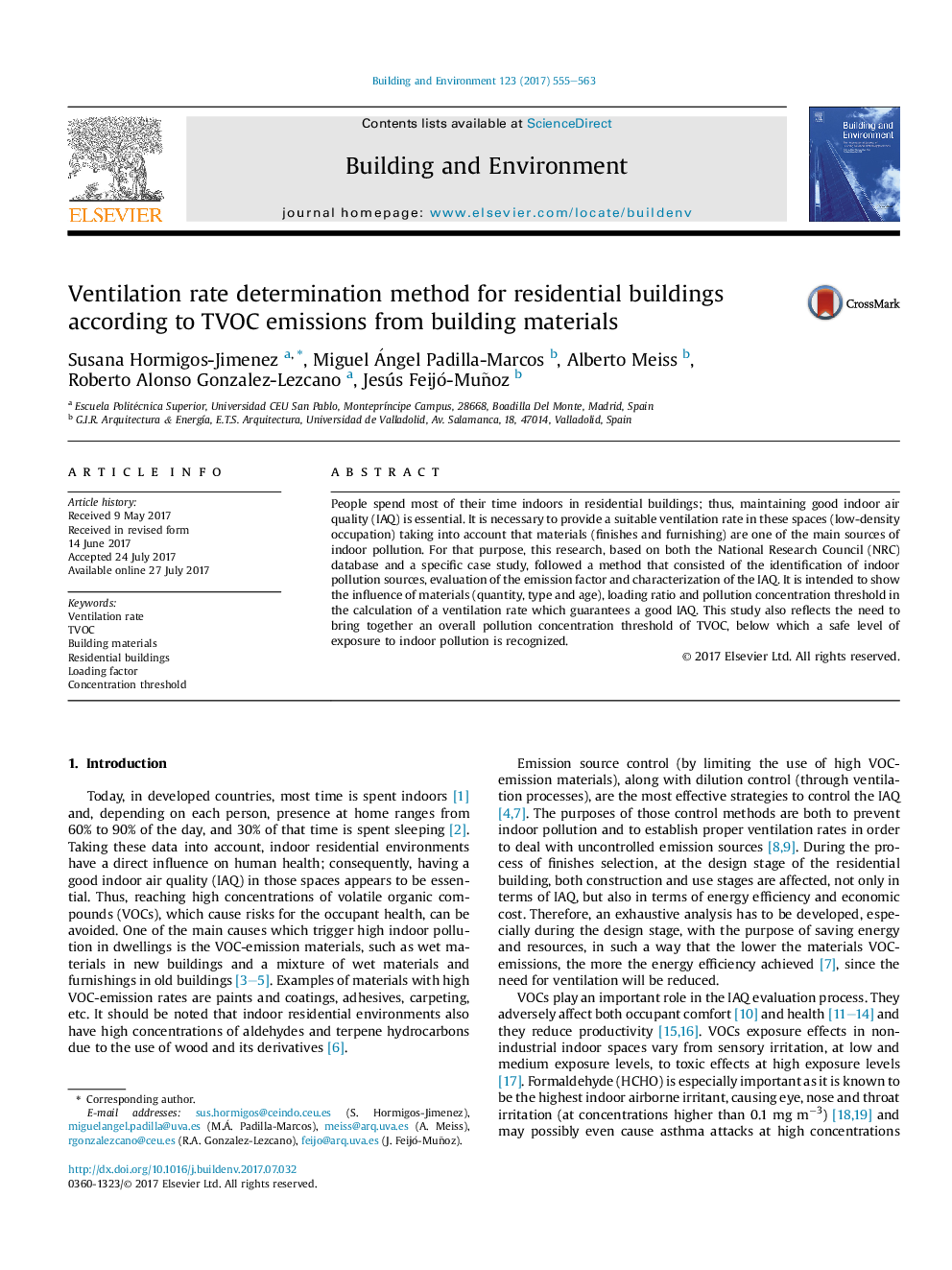| Article ID | Journal | Published Year | Pages | File Type |
|---|---|---|---|---|
| 4917280 | Building and Environment | 2017 | 9 Pages |
Abstract
People spend most of their time indoors in residential buildings; thus, maintaining good indoor air quality (IAQ) is essential. It is necessary to provide a suitable ventilation rate in these spaces (low-density occupation) taking into account that materials (finishes and furnishing) are one of the main sources of indoor pollution. For that purpose, this research, based on both the National Research Council (NRC) database and a specific case study, followed a method that consisted of the identification of indoor pollution sources, evaluation of the emission factor and characterization of the IAQ. It is intended to show the influence of materials (quantity, type and age), loading ratio and pollution concentration threshold in the calculation of a ventilation rate which guarantees a good IAQ. This study also reflects the need to bring together an overall pollution concentration threshold of TVOC, below which a safe level of exposure to indoor pollution is recognized.
Keywords
Related Topics
Physical Sciences and Engineering
Energy
Renewable Energy, Sustainability and the Environment
Authors
Susana Hormigos-Jimenez, Miguel Ángel Padilla-Marcos, Alberto Meiss, Roberto Alonso Gonzalez-Lezcano, Jesús Feijó-Muñoz,
